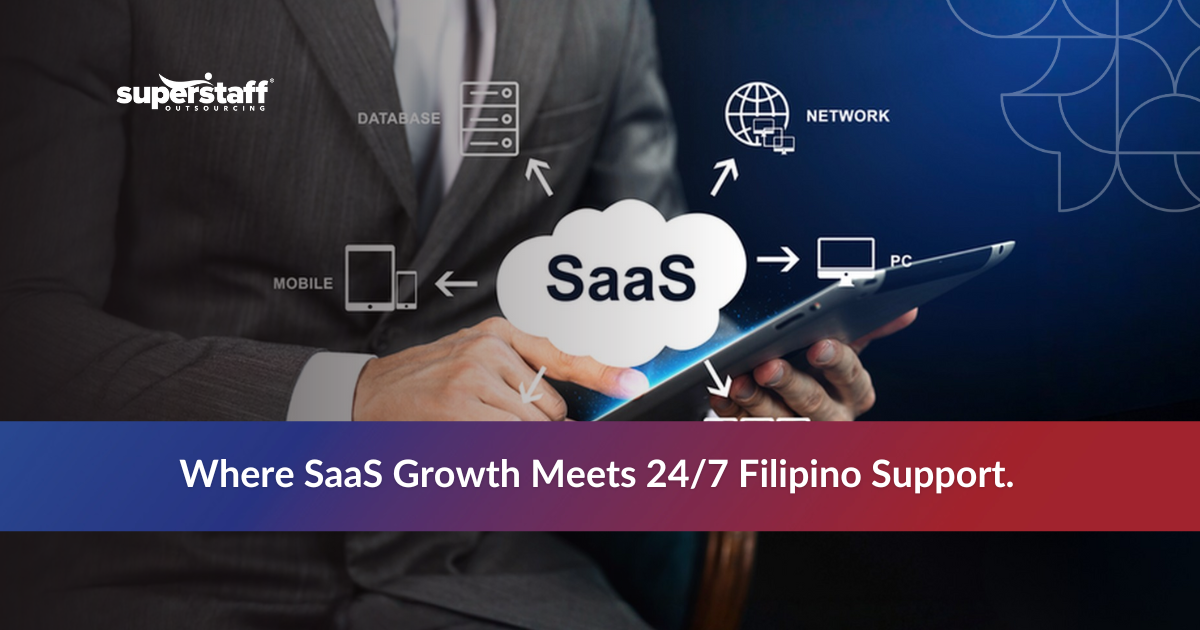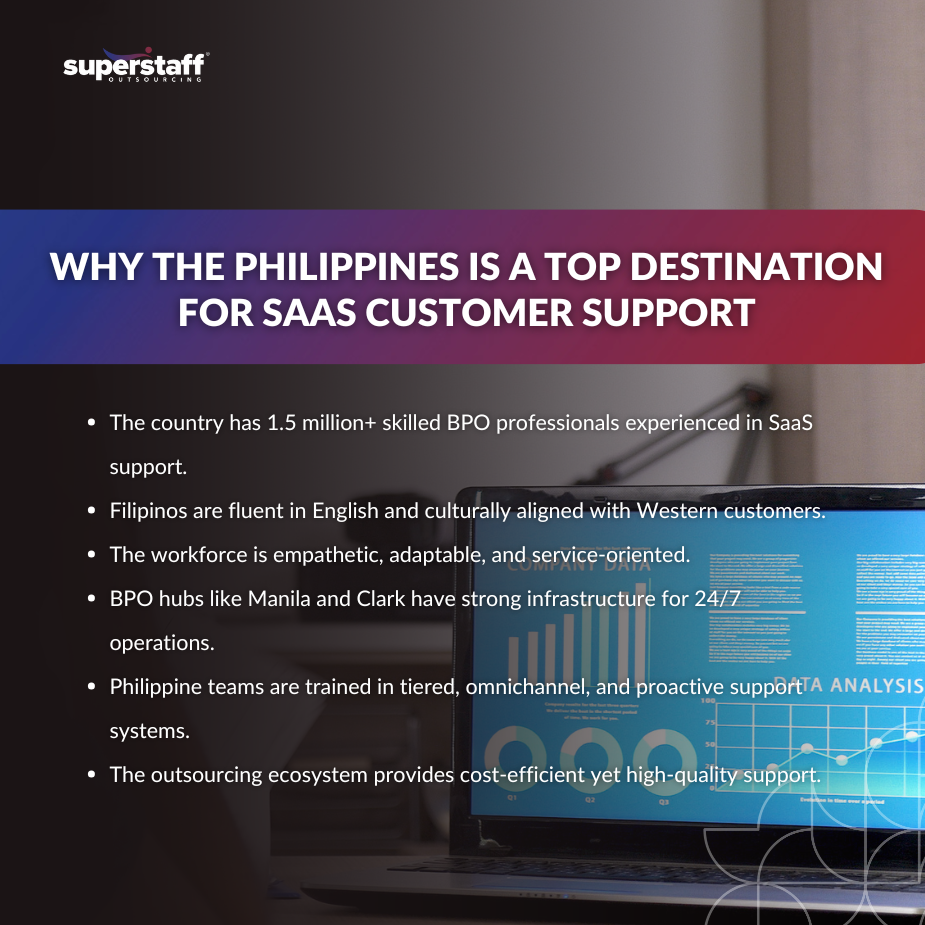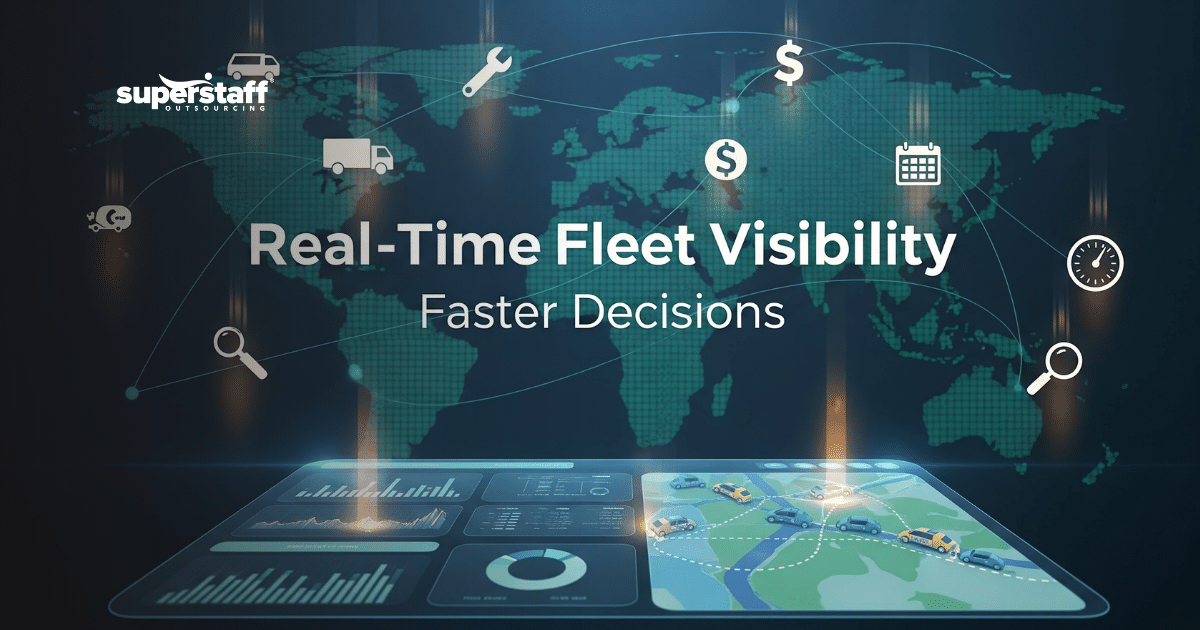
SaaS customers today expect nothing less than instant, 24/7, and seamless assistance. Whether it’s a billing issue at midnight or a technical glitch during peak hours, users expect immediate solutions that keep their operations running smoothly. In the world of software-as-a-service, a single moment of delay can make the difference between a loyal subscriber and a canceled renewal. That’s why SaaS customer support has become a defining factor in business growth and customer retention.
Yet, as SaaS companies scale rapidly, many find themselves unprepared for the sheer volume and complexity of support requests that come with global expansion. Building an in-house support team capable of covering multiple time zones, handling diverse customer issues, and maintaining consistent quality can quickly stretch internal resources thin. The challenge is not only staffing the frontlines but ensuring that every agent represents the brand’s promise of reliability and excellence.
This is where outsourcing to the Philippines emerges as the proven playbook for SaaS businesses. With its highly skilled, tech-savvy, and English-proficient workforce, the Philippines has become a global leader in providing scalable, cost-efficient, and high-quality SaaS customer support.
From startups chasing hypergrowth to established SaaS enterprises managing thousands of clients, partnering with Philippine outsourcing providers offers the perfect balance of affordability, scalability, and service excellence. The result? SaaS companies can grow faster, serve customers better, and maintain their competitive edge—without ever compromising the customer experience.
Why the Philippines Has Become the SaaS Support Hub
Over the past two decades, the Philippines has become synonymous with world-class customer experience. The country’s strong educational system, high English proficiency, and cultural affinity with Western markets have made it the top destination for outsourced SaaS support.
Today, more than 1.5 to 1.7 million Filipinos work in the business process outsourcing (BPO) sector. Many of them serve in specialized roles that go beyond traditional call center work—offering tiered technical support, onboarding assistance, and customer success services tailored for SaaS clients. Filipino agents are known for their empathy, adaptability, and professionalism, which align perfectly with the service expectations of global software users.
Cultural compatibility also plays a major role in SaaS customer support. Filipinos naturally understand Western communication styles, humor, and customer expectations. This makes them exceptionally effective in handling both simple inquiries and complex technical issues with a human touch. For SaaS companies seeking to deliver personalized, high-quality service, that cultural bridge is invaluable.
Infrastructure has also evolved to match the needs of the digital economy. Major BPO hubs like Manila and Clark have invested heavily in stable internet connectivity, cybersecurity systems, and round-the-clock operational support. These conditions enable 24/7 global operations—a must-have for SaaS companies serving international clients.
It’s no surprise, then, that many of the world’s leading SaaS firms rely on the Philippines to support their growing user bases. The country’s deep talent pool, strong business environment, and service-oriented culture directly translate into scalability and long-term value for SaaS organizations.

The SaaS Customer Support Playbook
Successful outsourcing doesn’t happen by accident—it follows a structured, proven playbook. For SaaS companies, this playbook starts with building a layered, omnichannel outsourced SaaS support system that scales with customer demand.
Tiered Support Structure:
The best SaaS support systems are tiered. Level 1 agents handle common issues like password resets and billing inquiries. Level 2 focuses on more complex cases involving integrations, APIs, and troubleshooting. Level 3 involves technical specialists who collaborate with developers or engineers. This model ensures that every issue is addressed efficiently, without overloading high-value staff.
Omnichannel Communication:
SaaS users interact across multiple platforms: email, chat, social media, and phone. A unified omnichannel approach allows customers to move seamlessly between channels while maintaining conversation history. Philippine-based BPOs are equipped with modern CRM and ticketing tools that make this integration effortless.
Proactive Customer Success:
The playbook also includes a shift from reactive support to proactive engagement. Instead of waiting for customers to report problems, agents monitor user activity, identify potential issues, and reach out with helpful guidance. This proactive approach boosts retention and drives upselling opportunities.
When these layers come together, they create a complete customer experience ecosystem. This is how outsourcing SaaS support improves scalability—it allows companies to expand without being bottlenecked by internal staffing or operational limitations.
Tangible Benefits of Outsourced SaaS Customer Support
The decision to outsource customer support isn’t just about reducing expenses—it’s about achieving business scalability and strategic advantage. The Philippines offers a rare combination of cost efficiency, quality service, and operational flexibility that directly supports SaaS growth.
- Lower Operating Costs:
Running an in-house support team can drain resources quickly. Salaries, benefits, training, and technology costs add up. With Saas customer service outsourcing, companies can access highly skilled professionals at a fraction of the cost, allowing them to allocate more budget toward innovation and product improvement. - Faster Onboarding and Time to Value:
SaaS success depends on how fast customers realize value. Philippine-based support teams are trained to guide users from onboarding to mastery, helping them unlock product features and achieve success faster. This builds trust and strengthens the brand’s long-term relationship with customers. - 24/7 Global Coverage:
SaaS is global, and downtime isn’t an option. Philippine outsourcing providers operate in shifts that align with different time zones, ensuring uninterrupted service. Whether it’s day or night, customers receive consistent, real-time support—enhancing reliability and loyalty. - Improved Customer Retention:
Customer retention is one of the strongest predictors of SaaS profitability. A well-trained outsourced team can identify early signs of dissatisfaction, resolve issues promptly, and encourage renewal. In many cases, these agents also drive upselling and cross-selling by helping users discover additional features.
In essence, outsourced SaaS support transforms customer service from a reactive function into a proactive driver of revenue growth.
Case Examples of SaaS Firms Scaling With Outsourcing
Across the SaaS landscape, many success stories show how outsourcing has powered growth. Let’s look at three common scenarios that illustrate why SaaS companies outsource customer support and how it has accelerated their expansion.
- Startups Scaling From Series A to IPO:
A fast-growing SaaS startup with a lean in-house team may struggle to provide consistent support as its user base skyrockets. By partnering with a Philippine outsourcing firm, the company can quickly deploy trained agents who specialize in software troubleshooting, freeing up founders and engineers to focus on product innovation. Over time, this partnership helps the startup scale sustainably and deliver enterprise-level support without ballooning costs. - Midmarket SaaS Expanding Into New Regions:
A midmarket SaaS company entering Europe or North America faces new languages, time zones, and compliance standards. Philippine support teams trained in multicultural communication and technical onboarding provide seamless 24/7 coverage. The result: faster international market penetration and stronger user satisfaction. - Enterprise SaaS With Technical Complexity:
For large enterprise SaaS providers, maintaining a high level of technical support is non-negotiable. Specialized Philippine hubs like Manila and Clark now host tech-driven support centers where agents are certified in cloud platforms, APIs, and cybersecurity. This advanced talent base enables enterprises to deliver complex, technical assistance with ease and precision.
In all these examples, outsourcing wasn’t a temporary solution; it was a growth engine. Each company leveraged Philippine talent to reduce friction, boost user retention, and scale operations faster than competitors relying solely on in-house teams.
How to Build a Successful SaaS Customer Support Partnership in the Philippines
Outsourcing works best when done strategically. For SaaS firms considering the Philippines, success depends on clear alignment, communication, and collaboration.
- Define SLAs and Metrics Early:
Set expectations upfront by defining Service Level Agreements (SLAs) that align with your customer experience goals. Metrics like response time, first contact resolution rate, and customer satisfaction (CSAT) should be established from day one. This clarity ensures both sides share accountability for outcomes. - Align Offshore Teams With Product and Engineering:
Your outsourced team shouldn’t operate in isolation. Regular syncs with internal product and engineering teams ensure that agents are always up to date on new releases, bug fixes, and updates. This integration turns the offshore team into a true extension of your brand. - Invest in Product-Specific Training:
SaaS platforms evolve quickly. Continuous learning programs are crucial for keeping outsourced agents proficient in the latest product features. The Philippines’ strong learning culture and tech-savvy workforce make it easy to maintain these standards. - Foster a Shared Culture:
Cultural alignment is key. Treat your outsourcing partner as part of your company culture—include them in team meetings, celebrations, and performance reviews. Filipino teams, in particular, thrive in people-centric cultures that emphasize trust and collaboration.
When these elements come together, SaaS firms can build partnerships that do more than just support operations—they drive innovation and customer loyalty. This synergy is how outsourcing SaaS support improves scalability across every stage of growth.
Elevate SaaS Customer Support With SuperStaff’s Reliable BPO Team
In the competitive SaaS landscape, growth without reliable support is unsustainable. As user bases expand globally, maintaining quality, speed, and empathy in every customer interaction becomes increasingly difficult to manage in-house.
Outsourcing SaaS customer support to the Philippines offers more than operational relief—it provides a long-term growth engine. With a workforce renowned for its communication skills, cultural empathy, and technical expertise, the Philippines stands as the world’s premier destination for SaaS customer service outsourcing.
From startups navigating early growth stages to enterprises managing millions of users, the formula remains consistent: outsourcing support to the Philippines enhances efficiency, improves retention, and ensures scalability. These partnerships help companies focus on what they do best—building great software—while ensuring users always receive exceptional service.
In short, why SaaS companies outsource customer support is clear: it’s not just to cut costs but to build capacity for growth, innovation, and global reach.
SuperStaff, with its deep experience in SaaS support and strong presence in both the Philippines and Colombia, helps businesses achieve exactly that.
Contact us today and unlock the scalable, high-quality support your SaaS company needs to thrive.






